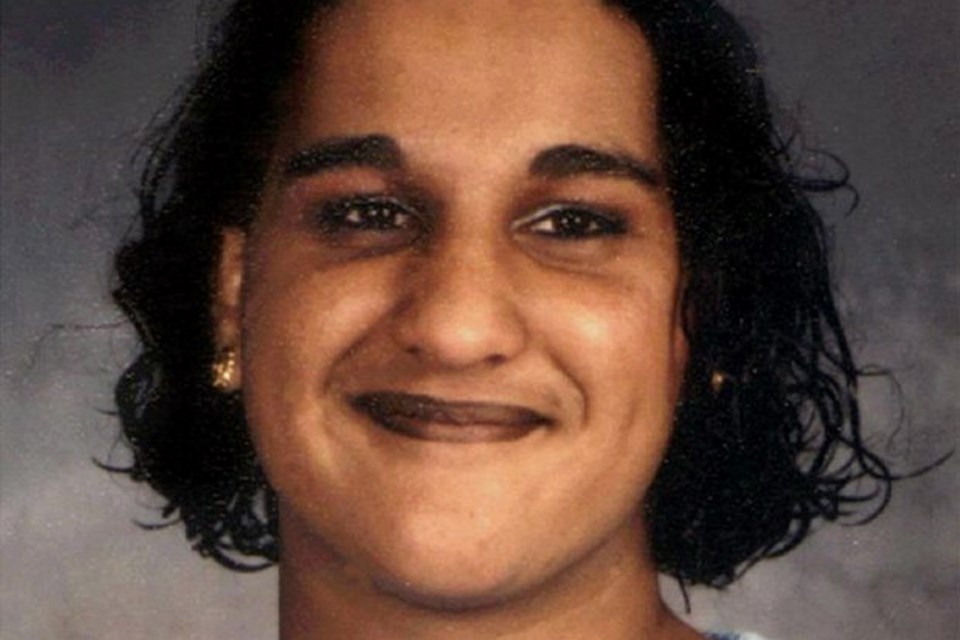An anti-bullying program that was created in the aftermath of the shocking assault and murder of Saanich teen Reena Virk received an award from Gov.-Gen. David Johnston Monday night in Ottawa.
WITS is an acronym for an anti-bullying strategy aimed at elementary school students. It stands for: Walk Away. Ignore. Talk it Out. Seek Help.
It is used in hundreds of schools across Canada in a partnership between police, teachers, community leaders and academics. The national distaste for bullying is also reflected in anti-bullying legislation now existing in every province in Canada.
Likewise, new moves are afoot help elementary-school students with Internet awareness and media literacy to battle cyber-bullying.
Bonnie Leadbeater, a psychology professor at the University of Victoria and lead WITS researcher, accepted the Canadian Institute of Health Research Partnership Award on behalf of the group that created the WITS program.
Leadbeater said the program is not strictly about trying to teach young people not to bully or to stand up for themselves. It’s more about the greater communities.
“We don’t actually try to fix kids,” Leadbeater said in an interview. “We try to create communities that will respond to children’s requests for help.”
The WITS program began when police, teachers, community leaders and university researchers were galvanized after the Nov. 14, 1997, mob beating and drowning of 14-year-old Virk under the Craigflower Bridge.
Two teens — a female and a male — were convicted of second-degree murder. Six other teenage girls were convicted of various assault charges.
Leadbeater said other examples of youth bullying violence were rocking the community around the same time.
For example, in 2001, Nicholas Chow Johnson, then 19, was left permanently brain damaged and disabled. Johnson was beaten by a gang of youths in Esquimalt for wearing a red jacket, later identified as the colours of a rival gang.
“There was this growing edge of youth violence that really concerned the police,” Leadbeater said.
Determined to get out in front of what was starting to look like a national wave, police began to aggressively target young children with an anti-violence message.
Likewise, the whole community became involved, determined to turn things around and make life safer for young people.
“We are really trying to get everybody in the community to use the same language, make getting help normal,” Leadbeater said.
“One of the big issues around Reena Virk’s death is that nobody would talk,” she said. “There was this code of silence that said, ‘If you report this, somebody will get you.’ ”
